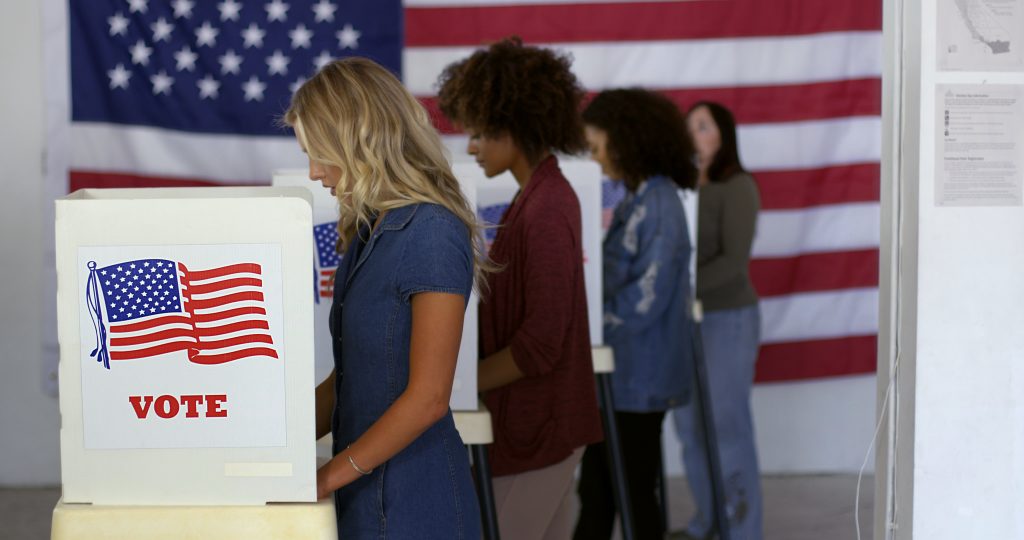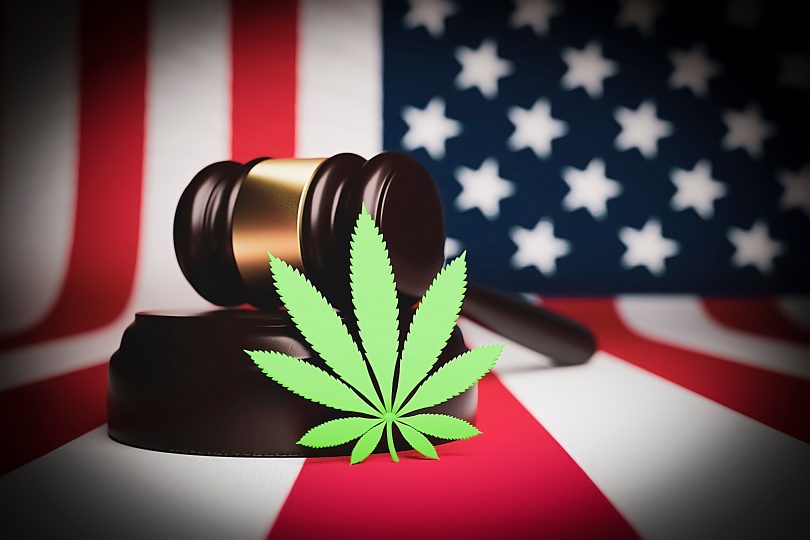UPDATE 04/01/2022, original date of publication was 03/25/2022: After only about one hour of deliberation, the U.S. House of Representatives voted 220-204 to approve the MORE Act that would decriminalize cannabis at the federal level. Two amendments passed while a third was rejected. Now it’s on to the Republican-majority Senate for a vote, where experts fear it is unlikely to pass. In 2020, a nearly identical bill passed the House but died in the senate, so it will be interesting to see what happens this time around. Check back here for more updates!
The MORE Act has been in the making since 2019, but for various reasons, failed to advance whenever it was introduced to congress. Even if the bill dies again this time around, it seems that with each passing every year we get closer and closer to reaching some level of sensible cannabis regulation. Whatever happens with the bill this time, we’ll keep you updated every step of the way. In the meantime, stay current on everything important happening in the industry by subscribing to the THC Weekly Newsletter. Also, it’ll get you premium access to deals on cannabis flowers, vapes, edibles, and much more! We’ve also got standout offers on cannabinoids, like HHC-O, Delta 8, Delta 9 THC, Delta-10 THC, THCO, THCV, THCP & HHC, which won’t kill your bank account. Head over to our “Best-of” lists to get these deals, and remember to enjoy responsibly!
Upcoming floor vote
Members of the US House of Representatives just announced yesterday that they will be holding a floor vote next week on The Marijuana Opportunity, Reinvestment, and Expungement (MORE) Act, or H.R. 3617. A lot of publications are describing this as a “federal legalization bill”. Essentially, this is true, but technically, it’s not. As per the opening text of H.R. 3617, the purpose of this bill is to “decriminalize and deschedule cannabis, to provide for reinvestment in certain persons adversely impacted by the War on Drugs, to provide for expungement of certain cannabis offenses, and for other purposes.”
The terms “decriminalization” and “legalization” are often used interchangeably, but there are some key differences between the two. Decriminalization officially removes criminal penalties for certain crimes, but civil penalties like fines and forced rehabilitation could still apply. Under such a mandate, individual states could make their own decisions whether to open up local cannabis markets or further restrict them. In short, the bill gives states even more leeway and makes a complete 180 degree turn from existing policy, stating that cannabis is actually NOT dangerous, and it DOES have medicinal value (something advocates and consumers have been saying for decades).
Additionally, this bill would make it so people with prior felony cannabis convictions will no longer be barred from obtaining business permits. The Small Business Administration would establish the Cannabis Restorative Opportunity Program, which would provide any necessary aid to businesses owned and operated by “socially and economically disadvantaged individuals.” HR 3617 would also prevent the federal government from denying benefits, housing, and social services to cannabis users, as has been the case in the past.
Now, we already know that if this bill passes, prosecution of “cannabis-related” crimes would immediately become a distant memory (reinvestment and expungement); and because no judge in their right mind would sentence someone to a treatment facility for cannabis (especially considering we have much more pressing addiction issues to deal with); and because the bill introduces a 5% tax on cannabis products and promotes legal sales; it’s safe to say that in this scenario, the difference between decriminalization and legalization is negligible.
The last time the MORE Act went to the floor was in December 2020. It passed with a 228-164 vote, with only five Republicans joining their Democratic colleagues in advancing the reform. The bill fizzled out afterwards and did not receive a hearing in the Senate.
Time for changes
Consumers and industry experts alike all agree, it’s time for changes. “Advancing this legislation to deschedule marijuana and to help those individuals and communities that have borne the brunt of America’s failed prohibition is pivotal,” said NORML’s Political Director Morgan Fox. “More than two thirds of Americans support repealing the federal prohibition of marijuana and they deserve to know where our elected officials stand on this issue.
Maritza Perez, director of the Drug Policy Alliance’s office of national affairs, said this bill serves as an opportunity to move past decades of racially unjust cannabis prohibition laws and the consequences of such enforcement. “For over half a century, marijuana prohibition has stood as the cornerstone of the cruel and inhumane drug war that has robbed millions of people of their freedom and their livelihoods. The weight of which has disproportionately fallen on the backs of Black, Latinx, Indigenous and low-income communities—who remain its number one target,” she said.
“They’ve been denied jobs, housing, educational opportunities and far more. They’ve had their families torn apart. Others have lost their immigration status. And our communities have suffered gravely as a result.” Passing the legislation will help “ensure our communities are not put on the backburner and made to wait a moment more for long-overdue justice,” she added.

Justin Strekal, founder of the pro-legalization political action committee BOWL PAC, made an interesting point as well, stating that the outcome of the floor vote will help voters better understand their lawmakers’ points of view on cannabis, and thus, allow them to vote accordingly.
“For the first time in history, Americans will be able to go to polls knowing whether or not their representative voted to end prohibition or maintain the racist and senseless policy of marijuana criminalization,” he said. “Now is the time for lawmakers to ask themselves the question: Do I want to vote against the will of the supermajority of American voters?”
What about the Senate bill that just passed?
Seemingly under the cover of darkness, the Senate passed a completely different cannabis-related bill on Thursday. This bipartisan piece of legislation will loosen restrictions in the science sector. It would streamline the application process for researchers who wish to conduct studies and trials on cannabis, as well as encourage the Food and Drug Administration (FDA) to utilize said research and develop more cannabis-derived medications.
“Current rules and regulations make it hard for researchers to study how marijuana and marijuana-derived medications can best be used to treat various conditions,” said CA Senator Dianne Feinstein in a press release. “This important legislation will cut the red-tape around the research process, helping get FDA-approved, marijuana-derived medications safely to patients.”
Chuck Grassley (R-IA), a cosponsor of the bill, said that the legislation “is critical to better understanding the marijuana plant and its potential benefits and side effects.” He added, “It will empower the FDA to analyze CBD and medical marijuana products in a safe and responsible way so that the American public can decide whether to utilize them in the future based on sound scientific data,” he said. “Researching marijuana is widely supported by my colleagues on both sides of the aisle, and it’s a smart step forward in addressing this current schedule I drug.”
Conclusion
This is undeniably a very exciting time to be a stoner. A few decades ago, the thought of federal cannabis legalization was about as outlandish as political ideology can get. But now, it appears that The MORE Act is gaining traction, and decriminalization doesn’t seem so far out of reach. Even if HR 3617 doesn’t pass next week, or doesn’t advance through the senate again, we can be certain that a bill of this nature will pass soon, finally putting an end to our restrictive and absurd prohibition laws.
Hello and welcome! You’ve made it to CBDtesters.co, the #1 web spot for the most comprehensive independent news coverage of the cannadelics, cannabis and psychedelics industries. Join us whenever possible to stay in-the-loop on the ever-changing landscape of cannabis and psychedelics, and subscribe to The THC Weekly Newsletter, so you’re always on top of what’s going on.
Disclaimer: Hi, I’m a researcher and writer. I’m not a doctor, lawyer, or businessperson. All information in my articles is sourced and referenced, and all opinions stated are mine. I am not giving anyone advice, and though I am more than happy to discuss topics, should someone have a further question or concern, they should seek guidance from a relevant professional.







